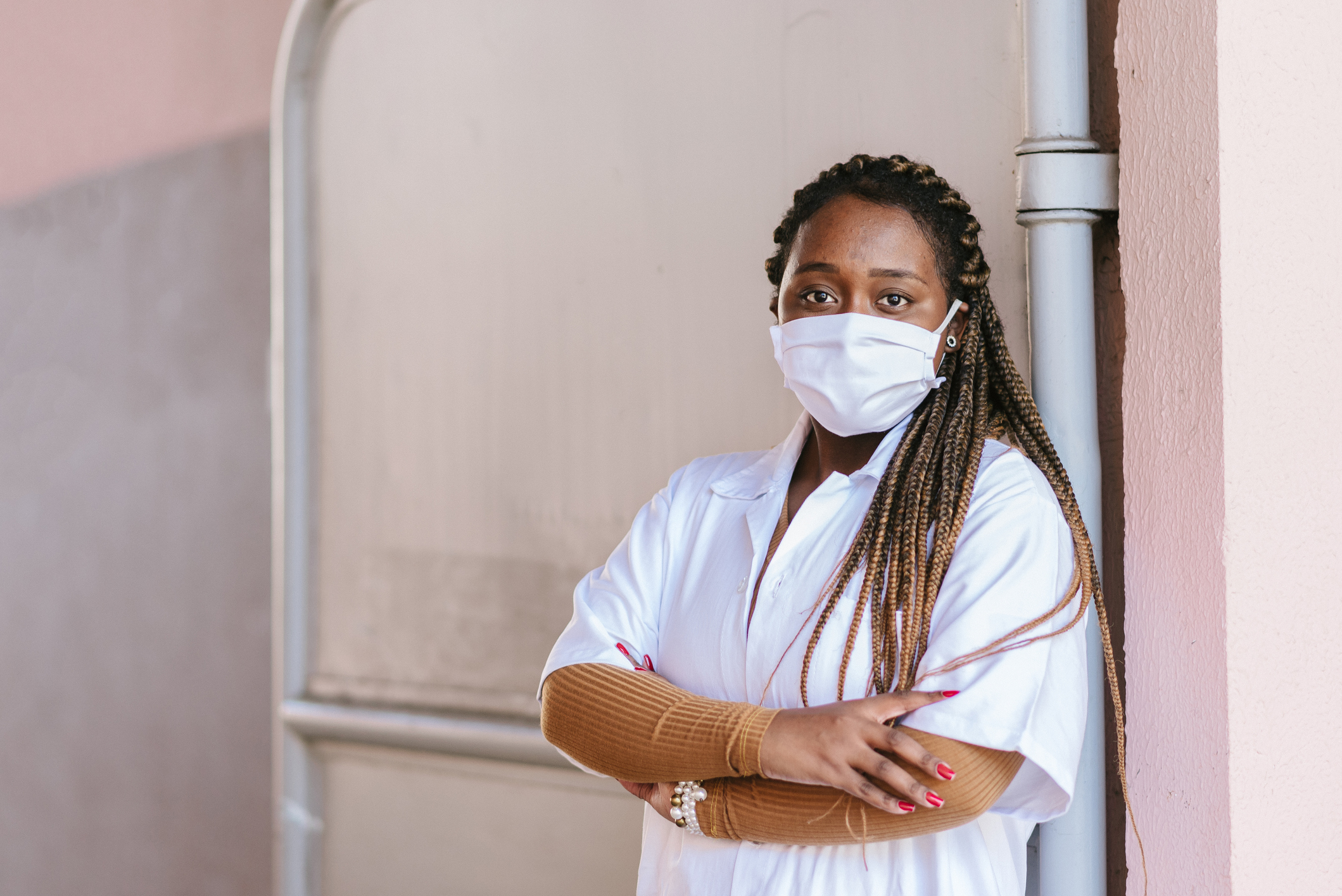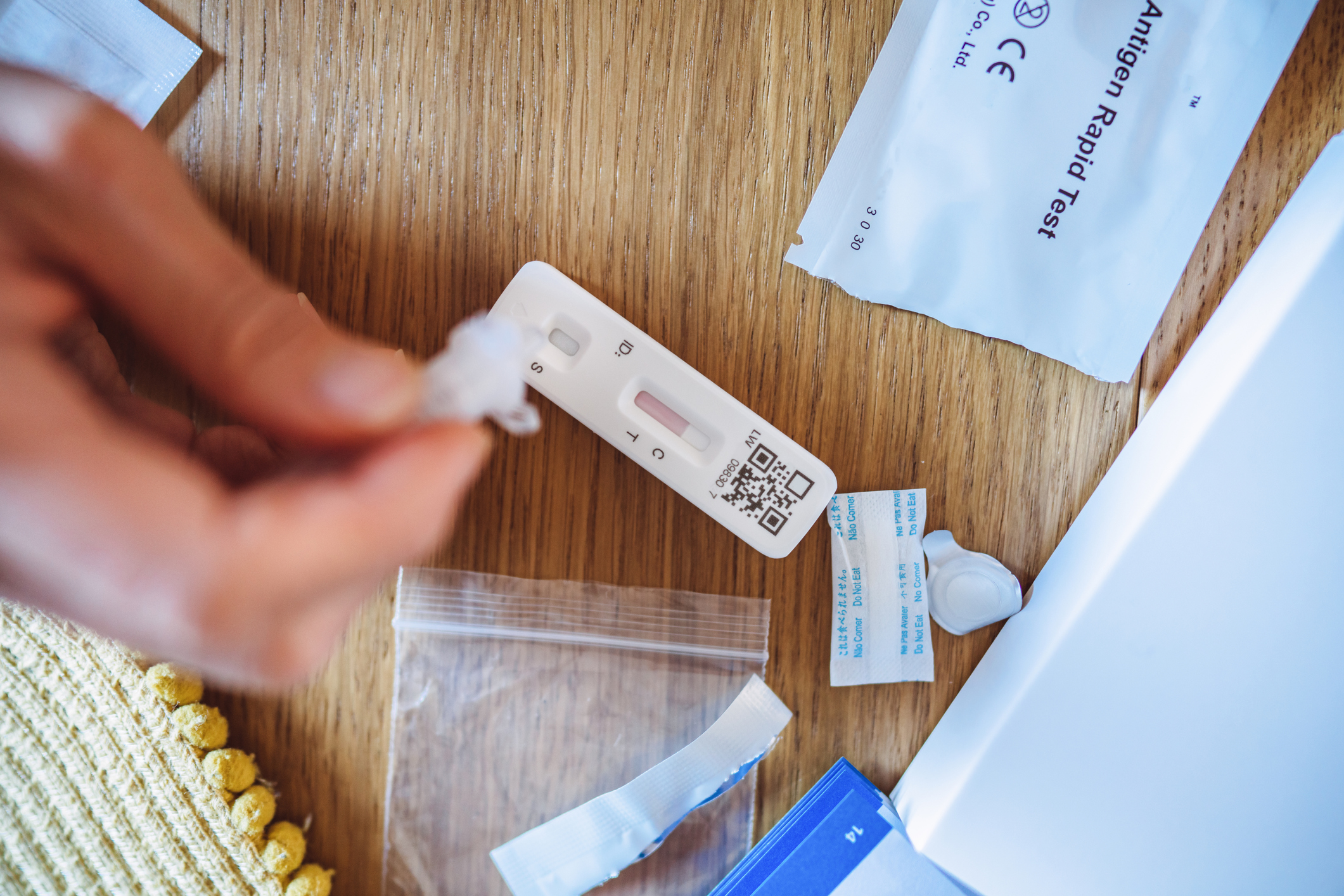
Celebrity news, beauty, fashion advice, and fascinating features, delivered straight to your inbox!
You are now subscribed
Your newsletter sign-up was successful
They're being called "Deltacron" and "Stealth Omicron".
You might have noticed it rearing its head again: first a friend, then a colleague, or even you personally catching Covid-19 and testing positive in the last few weeks. Cases of the virus are on the rise again across not just the UK, but globally, too.
It's not a surprise, given that all restrictions were lifted in the UK on 24th February, but that being said, in one day (14th March), there were 170,000 new cases reported in the UK alone - around 40% of the peak.
There are two new Covid-19 subvariants - Deltacron and Stealth Omicron - on the rise .
Experts think that the subvariants are likely behind the current global surge in cases affecting China, South Korea, Africa, and more.
China saw their first deaths from Covid in over a year last month, with Africa seeing a 14% jump in cases, too.
You might argue the stats are different now, with 73.4% of the UK population fully vaccinated. But certain experts have expressed concern about how transmissible the new strains are. So are they more transmissible?

Your need-to-knows about the two new Covid variants: are they more transmissible?
What is the Deltacron covid variant?
As the name suggests, Deltacron is a Delta and Omicron hybrid, which means that the subvariant is made up of the Delta and Omicron strains. (Read up on the Omicron symptoms, here).
Celebrity news, beauty, fashion advice, and fascinating features, delivered straight to your inbox!
While there haven't been many cases in the UK yet - around 30, according to the UK Health Security Agency (UKHSA) - reports show that it may have been affecting Europe since as early as January.
What is the Stealth Omicron variant?
Scientists first found cases of the Stealth Omicron variant in the UK last December, just before Christmas. It's also been recorded in Germany, Denmark, China, and India.
While the UKHSA has said it's a variant under investigation - not a more serious variant of concern - several qualified experts have taken to social media to share their disagreement.
Professor Adrian Esterman, an epidemiologist who used to work for the World Health Organisation, shared on Twitter: “The basic reproduction number…for BA.2 is about 12. This makes it pretty close to measles, the most contagious disease we know about.”
At current, it's thought that Stealth Omicron has caused around half of the new cases in England, making it one of the most transmissible variants yet.
So, it spreads fast - but what happens once it spreads? Initial data from Denmark and other countries is suggesting that, while it surges quickly, it is impacted by the vaccine and booster, meaning if you've been fully vaccinated, you should be protected.
You asked, we answered: can you exercise after your Covid booster?

What do the experts think?
Health secretary Sajid Javid said there's “no particular cause for concern."
“It’s important for us.. for us to understand why they are rising," he told BBC1’s Breakfast programme. “That's primarily down to the increased social mixing we are seeing, as our country has opened up, but also the BA.2 subvariant of Omicron, which we know is more infectious, but also, that our vaccines work just as well against this.”
That being said, as above, other experts are worried about how transmissible the new variants, particularly BA.2, are, as well as how slow the government's rollout of spring booster jabs has been.
Should you be worried?
Short answer: yes and no. Some scientists maintain that if you've been fully vaccinated, you have done everything you can to protect yourself from the new variants.
Plus, they share that data suggests humans are becoming increasingly immune to the variants, meaning they're causing less harm (and certainly death).
That being said, others point out the delayed lack of booster jab roll out and worrying rise of cases as a recipe for disaster, come summer.
Do take precautions where necessary - that is, wearing a mask, washing your hands regularly, and so on - and book your booster, when you can.

Ally is Marie Claire UK's Senior Health and Sustainability Editor, a well-regarded wellness expert, ten-time marathoner, and Boston Qualifying runner.
Utilising her impressive skillset and exceptional quality of writing, she pens investigative, review and first-person pieces that consistently demonstrate flair and originality.
As well as writing, Ally manages a team of freelancers, oversees all commissioning and strategy for her pillars, and spearheads the brand's annual Women in Sport covers, interviewing and shooting the likes of Mary Earps, Millie Bright, and Ilona Maher. Shortlisted for three BSMEs and winning one in 2022, Ally lives and breathes her verticals: her eye for a story and connections within the wellness sphere are unrivalled. Follow Ally on Instagram for more.
